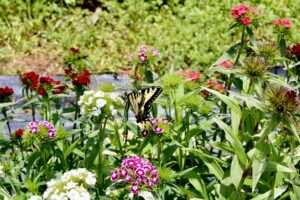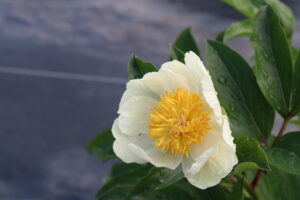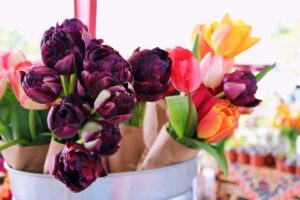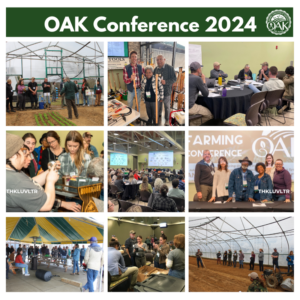Final report for SKY23-001
Project Information
Dr. Tim Woods is the UK State Coordinator and Brett Wolff is the Kentucky Program Assistant. In addition to his leadership of the program, Dr. Woods brings expertise in marketing, agribusiness development, and local food systems. Brett continues to act as a networker for the program, identifying new opportunities for collaboration and new venues to share SSARE resources. In our proposed programming this year, we are offering two intensive travel-based training opportunities for ag professionals. The first is a training trip to Utah so that the Ag professionals can learn more about cut flower marketing and production to better support the burgeoning cut flower industry in the state. The second provides funding for a core of extension professionals to attend the national Soil Conservation Conference and think critically about how to do better conservation outreach to counties. While the bulk of programming costs associated with the Third Thursday Thing are included in the Kentucky State University proposal, we have historically provided support to their monthly workshops and the program assistant supports both programs. The dynamic and needs for supporting that program --given the additional program assistant funds--is yet to be determined.
Note that the funds in Kentucky are split into Kentucky State University funds and University of Kentucky funds. The two programs work together, though each has slightly different but complementary goals.
The University of Kentucky’s program is this year is offering intensive training via travel opportunities in two primary areas: a Cut Flower Learning Experience Trip and supporting a core group attendance to the 2023 Soil and Water Conservation Society Conference.
2023 Revised Objectives
- Continue to offer the basic science-based information on sustainable agriculture production and marketing.
- Supplement previous efforts with new on site training for cut-flower grower support.
- Expanding professional capacity of agriculture professionals to discuss marketing and growing cut flowers.
- Development of a core campus-county partnership discussing soil conservation and how to best share that information with agents.
2022 Kentucky SARE MSP Objectives:
- Continue to offer the basic science-based information on sustainable agriculture production and marketing.
- Supplement previous efforts with new subject matter training about farm succession and transition planning.
- Expanding professional capacity of agriculture professionals in supporting producers as they plan for the present and future of their farms.
- Support the further development of a community of women working in sustainable agriculture.
Program details:
Cut Flower Learning Experience Trip
A team of agricultural professionals and farmer leaders (25 participants) will travel to Raleigh, North Carolina to visit with their cut flower production and marketing unit. In addition to visiting with NCState Extension, the group will travel to 3-5 farms in the surrounding area to see how these producers have developed their production systems and markets. This is in response to a tripling of the number of cut flower farms in Kentucky over the last 5 years. Upon return, travel participants will be convened to help structure future training plans and to assess future needs for supporting cut flower producers. We will do in-depth evaluation at this time to complement a pre-trip evaluation so we can assess knowledge gained.
Soil and Water Conservation Society Conference
Soil and water conservation are a critical component of on-farm sustainability. We will fund a small group of campus and county-based personnel to attend the 2023 Soil and Water Conservation Society Conference in Des Moines, Iowa. The trip will provide an opportunity for all parties to learn directly via conference sessions, but more importantly allows for the development of conversations about how we might improve county-level outreach related to soil and water conservation. Upon return, travel participants will be convened to help structure future training plans and to complete a post-training evaluation. Details: https://www.swcs.org/events/conferences/2023-annual-conference/
Advisors
- (Educator)
- (Educator)
- (Educator)
- (Educator)
- (Educator and Researcher)
- (Educator)
- (Educator)
- (Educator)
Education
The Cut Flower Study tour is focused on network development between agriculture service providers and farmer leaders to better support and develop the Cut Flower Industry in Kentucky. Aside from the tour itself which features multiple stops including production and marketing techniques in North Carolina, the agenda also includes structured networking activities before, during, and after the trip.
The OAK Conference includes a variety of workshop and lecture formats covering myriad organic and sustainable agriculture topics. The agenda is available here: https://www.oak-ky.org/conference-2024-recordings
Education & Outreach Initiatives
To build and strengthen networks between professionals supporting the cut flower industry while expanding their knowledge of sustainable production and marketing approaches.
Due to seasonality constraints, the best time for our Cut Flower Learning Tour was July. Therefore, we received a no-cost extension and made the trip in July 2024.
See our Tour Agenda and finalized attendee list including NGOs, market leaders, 1890 and 1862 extension professionals, and governmental employees working in the area. One extension professional on the planning team completed a scouting visit to the area ahead of time and confirmed with participating farms. Pictures below are from that trip.
We will complete a pre-trip orientation with all participants including a survey and reflection. This will occur in late June. We will conduct evaluation at the beginning of the trip and at the conclusion and 3 months post-trip.
Anticipated outcomes include:
Expanded knowledge of sustainable agriculture production and marketing practices
New and strengthened networks between ag professionals and market leaders
Long-term improved prospects for flower growers in Kentucky
11/12 attendees reported improved understanding of sustainable agriculture practices.
12/12 attendees reported improved understanding of SARE program and resources.
12/12 attendees reported improved understanding of cut flower marketing practices.
75% of participants indicated that the strength of their networks with other KY cut flower professionals increased by "a large amount."
62.5% of participants indicated that the strength of their networks with North Carolina cut flower professionals increased by "a large amount."
You can view a short trip impact video here: https://youtu.be/zZcAfxZyVF0
To support agriculture professionals and farmer leaders in gaining new knowledge and networks in sustainable agriculture.
In tandem with Regional SARE travel scholarships, we supported attendance at the 2024 Organic Association of Kentucky Conference. Overall we supported 85 scholarships for ag service providers and farmer leaders to attend the 2024 OAK conference. An impact summary is available here: OAK 2024 Conference Impact Report.
Participants will gain new knowledge and networks in sustainable agriculture.
Educational & Outreach Activities
Participation summary:
Learning Outcomes
Project Outcomes
Face of SARE
Our Program Assistant continues to serve as one of the primary faces of the KYSARE program. He networks extensively across the state and beyond to identify new partners and new ideas for amplifying our financial investment. The core job of KY SARE’s Program Assistant is coordinating all of the SARE-promoted trainings and programs. This includes working with the content providers (faculty, private sector, government, NGO) and SARE leadership to develop effective programs. He provides logistical support (finding meeting space, arranging travel, access to materials) and assisting program evaluation. We have provided SARE materials, support and information for producers, researchers and other ag professionals in applying for SARE grants and have highlighted SARE materials in our extension programs for other areas. This synergy is invaluable.
Kentucky’s SARE PDP program objective is to build a broad base of interest and skills in agricultural sustainability among extension agents and other professionals in the state, equip them with the needed skills to assist farmers, marketers, and community leaders, and to facilitate a diverse range of collaborative projects. The way that we manage our programs has led to strong partnerships with the Kentucky Department of Agriculture, NRCS, FSA, Community Farm Alliance, Kentucky Center for Agricultural and Rural Development, the Cooperative Extension Service, Grow Appalachia, as well as grower groups across the state
We promote SARE grant programs, print/digital resources, and support from the MSP at conferences including the Kentucky Fruit and Vegetable conference, OAK conference, KSU Small Farms conferences, Agent trainings, and various other farmer- and ag professiona-focused events throughout the year.



